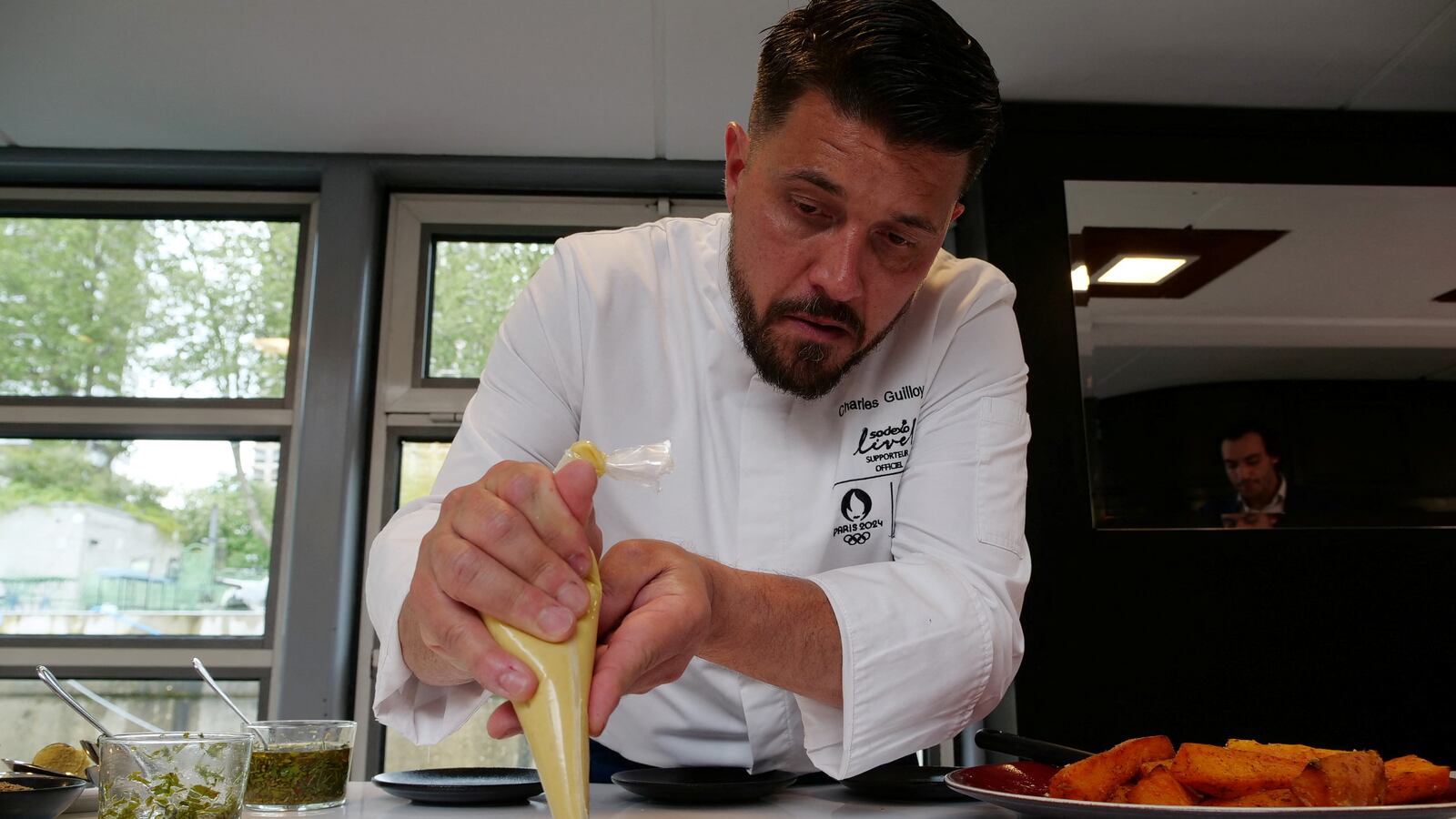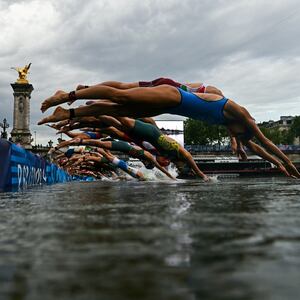Paris promised the world when it was bidding to host the 2024 Summer Olympics: iconic backdrops, top-level sports, and—of course—delicious food cooked by Michelin-starred chefs.
They certainly delivered on the backdrops: the Eiffel Tower and Arc de Triomphe especially. The sports have been pretty good so far too, especially if you’re French. But the food? Not so much.
According to the French newspaper Libération, of the 60,000 meals served at the Olympic village every day, only 600 are cooked by actual Michelin-starred chefs.
That means there’s a 1 percent chance your dish was handled by a giant of French gastronomy. Or a 99 percent chance that it wasn't.
Before the Games got underway, organizers boasted that the 550 menus served at the 3,300-seat restaurant would be 60 percent vegan, because, they explained, plant-based food is better for the planet. For Olympic competitors food is just fuel, however, and athletes were quick to complain that they weren’t getting enough of the calories and protein they needed to prepare for their events.
Even before the opening ceremony, the British team flew in a spare chef and lined up extra supplies to feed athletes at the U.K. training center in the Paris suburbs rather than have them queue up in the village. Team chief Andrew Anson complained of a shortage of key proteins like chicken and eggs, and said some athletes were being fed “raw meat.”
Germany men’s hockey team were up in arms too. “The food is a disaster, to say the least,” forward Christopher Rühr told the dpa news agency, complaining of long lines and popular food options constantly running out.
Organizers brushed aside the complaints, and French catering giant Sodexo Live, which is in charge at the village, said supplies of foods like eggs and chicken had been increased to meet demand.
But the complaints continue to come, including from the American gymnast Simone Biles, who caused a stir when she appeared to give a thumbs-down to the food on offer.
After leading USA to the team gold on Tuesday night, Biles and her teammates were asked by a French journalist what they were eating and whether they liked French food.
After a knowing glance exchanged between the team, Biles—who has a French coach and is a huge star in France—stepped up to offer the most diplomatic answer she could.
“OK, here’s the thing,” she explained. “In the village, it’s not proper French cuisine like you guys might be eating, ’cause you guys are outside the village. So, for the athletes it’s, like, a little bit healthier.”
Her younger teammate Hezly Rivera interrupted, itching to have her say: “I don’t think it’s very good, at least what we’re having in the dining hall. I definitely think French food is good, but what we’re having in there, I don’t think it’s the best."
In a country that considers itself the home of proper gastronomy, their complaints made headlines, puncturing French amour propre.
But the quality of the food has not been the only issue for athletes at the village. The athletes’ apartments are meant to be “self-cooling,” relying on a water-cooling system under the village, but that has been unable to cope with a summer heatwave with temperatures into the 90s. Teams have been forced to rent or buy their own air-conditioning units.
There have also been complaints about the return of recyclable cardboard beds, dubbed “anti-sex beds” when first used at the Tokyo Games three years ago. Australian water polo player Matilda Kearns claimed on TikTok that she had needed a massage to “undo the damage” caused by her “rock-solid” bed.






